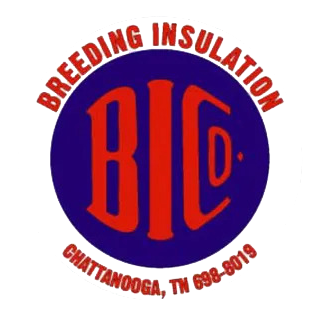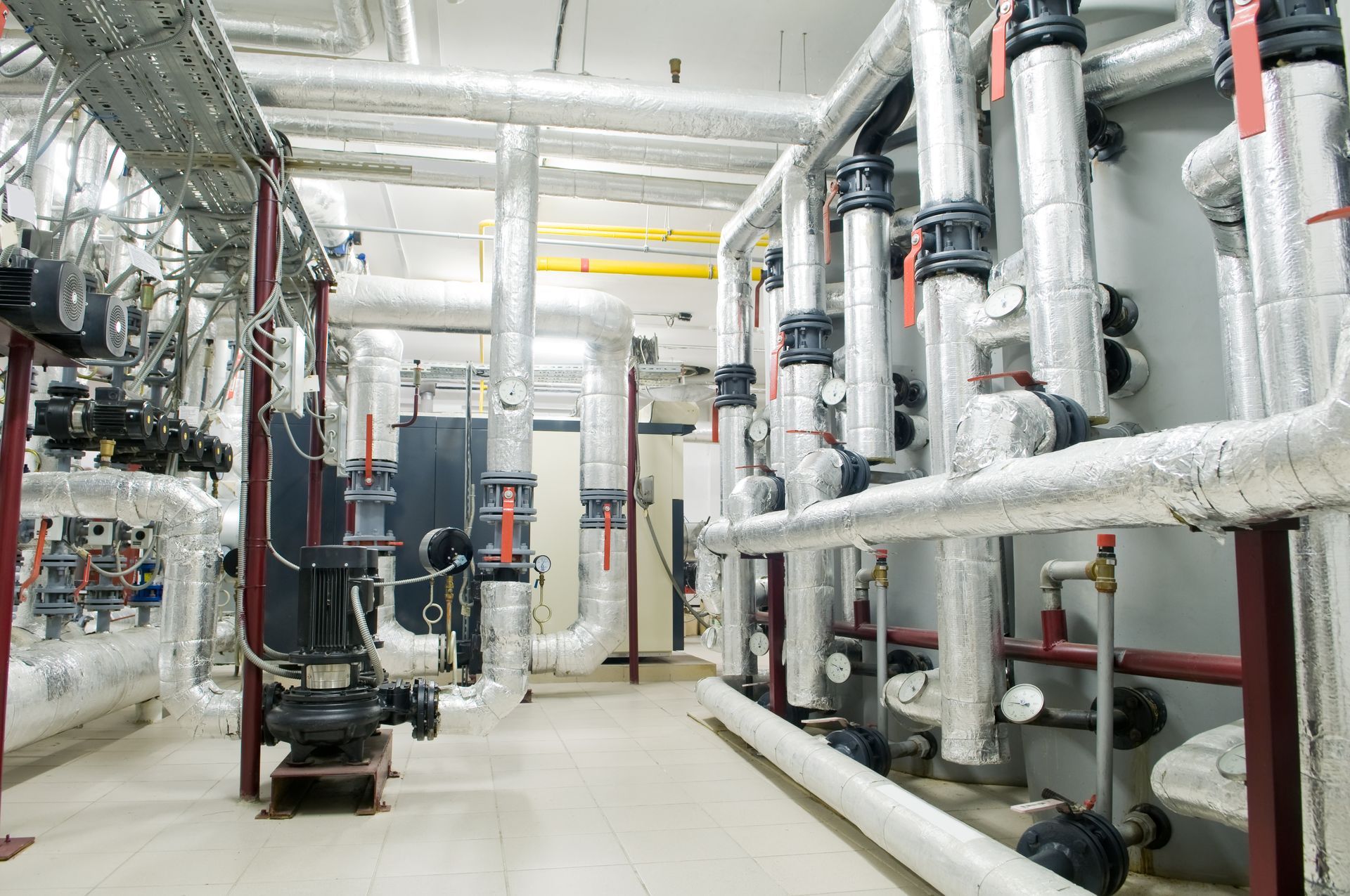Blog Post

When it comes to protecting your Cleveland, TN business from rising energy costs, improving safety, and maintaining equipment efficiency, mechanical insulation is a smart and cost-effective choice. At Breeding Insulation Company, we specialize in providing mechanical insulation products for sale in Cleveland, TN, that can make a significant difference to your bottom line. Here are five essential reasons why mechanical insulation should be on your radar.
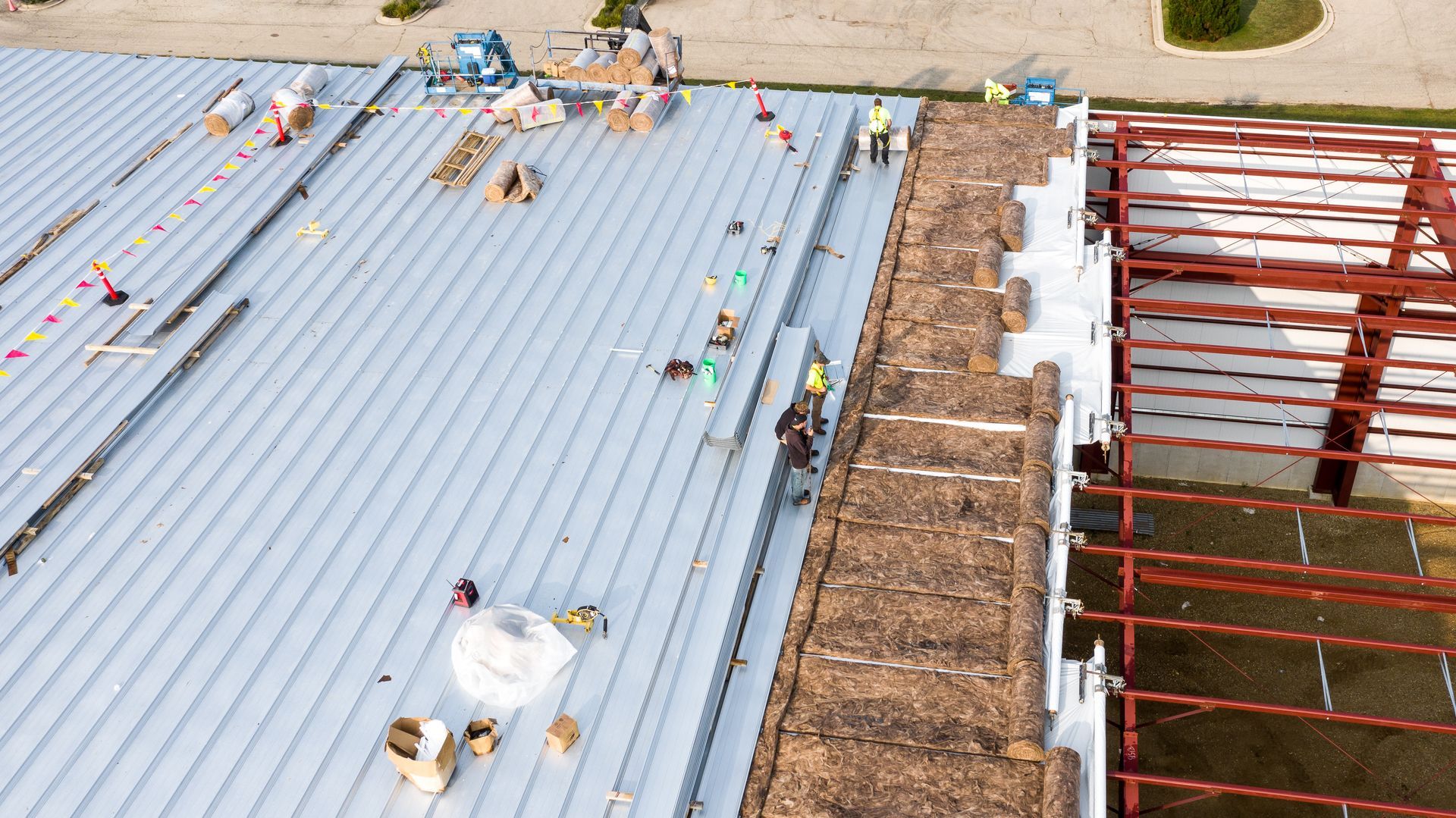
Owning a home is a huge responsibility, but it's easy to overlook many parts of the home, especially the insulation. Insulation is usually out of sight and out of mind, but when you don't have enough insulation, you can waste lots of money. If you would like to know more, keep reading. Why Is Insulation Important? Insulation drastically helps improve your home's ability to withstand the transfer of heat. This means your home naturally stays cooler in the summer and warmer in the winter. As a result, you use less energy and money to keep your home heated and cooled. Insulation is specifically designed to have a high resistance to heat transfer, and some types of insulation are also good at blocking moisture. Unfortunately, in some older homes, enough insulation was not originally used, so you may not realize your home is lacking insulation. Signs your home doesn't have enough insulation include cold walls, drafts, mold and moisture inside the house, high energy bills, etc. What Types of Insulation Are Available? There are many different types of insulation, but homes only tend to use a handful. Home insulation often comes in rolls made from fiberglass, mineral wool, or plastic fibers. These rolls allow you to cut out pieces and lay them between the studs in the walls and the rafters in the ceiling. Some insulation is loose-fill fiberglass or cellulose insulation. This type of insulation is similar to the rolls, but it is blown into place. Spray foam insulation is also growing in popularity for homeowners. This is often viewed as one of the most effective types of insulation, but there are two different options: open-cell and closed-cell. Both are durable, but closed-cell spray foam insulation is also moisture-resistant. In some cases, reflective systems may need to be used. These are great for unfinished areas of the home, such as an unfinished garage or basement. The foil used helps better prevent the transfer of heat. What Does R-Value Mean? Insulation is measured in R-Value, and every building material has an R-value. Of course, since insulation is designed to withstand the transfer of heat, it is designed with a high R-value. Different types of insulation have different R-values, but the higher the value, the better it withstands the transfer of heat. Naturally, closed-cell spray foam has one of the highest R-values. The ideal R-value depends on two factors: where you live and where you are installing the insulation. For the most part, the hotter the climate, the lower R-value you need. For example, the majority of Tennessee is considered zone 4. In zone 4, the ideal R-value for attics is R38 to R60, and the ideal R-value for walls is R13 to R21, depending on the size of the wall. In the lower portion of Florida, however, R-value for the attic only needs to be R30 to R49. Where Should Insulation Be Added? Insulation should be added to many parts of your home. Typically, you want to add it to the attic, basement, every wall, every floor, and every ceiling. Attic insulation is particularly important at preventing heated air from escaping via the roof on cold days. It also helps prevent heat gain inside the house from the sun on hot days. In addition, you should add insulation to other parts of the house, such as any ductwork, pipes that transport heated and cooled water, and your water heater. This will help keep the air and water naturally warmer, so you use less energy. Insulation is easy to ignore, but it is important for reducing the transfer of heat inside your home. With a great R-value, you can save money on heating and cooling. If you would like to know more, contact us at Breeding Insulation Company, Chattanooga, Inc., today.
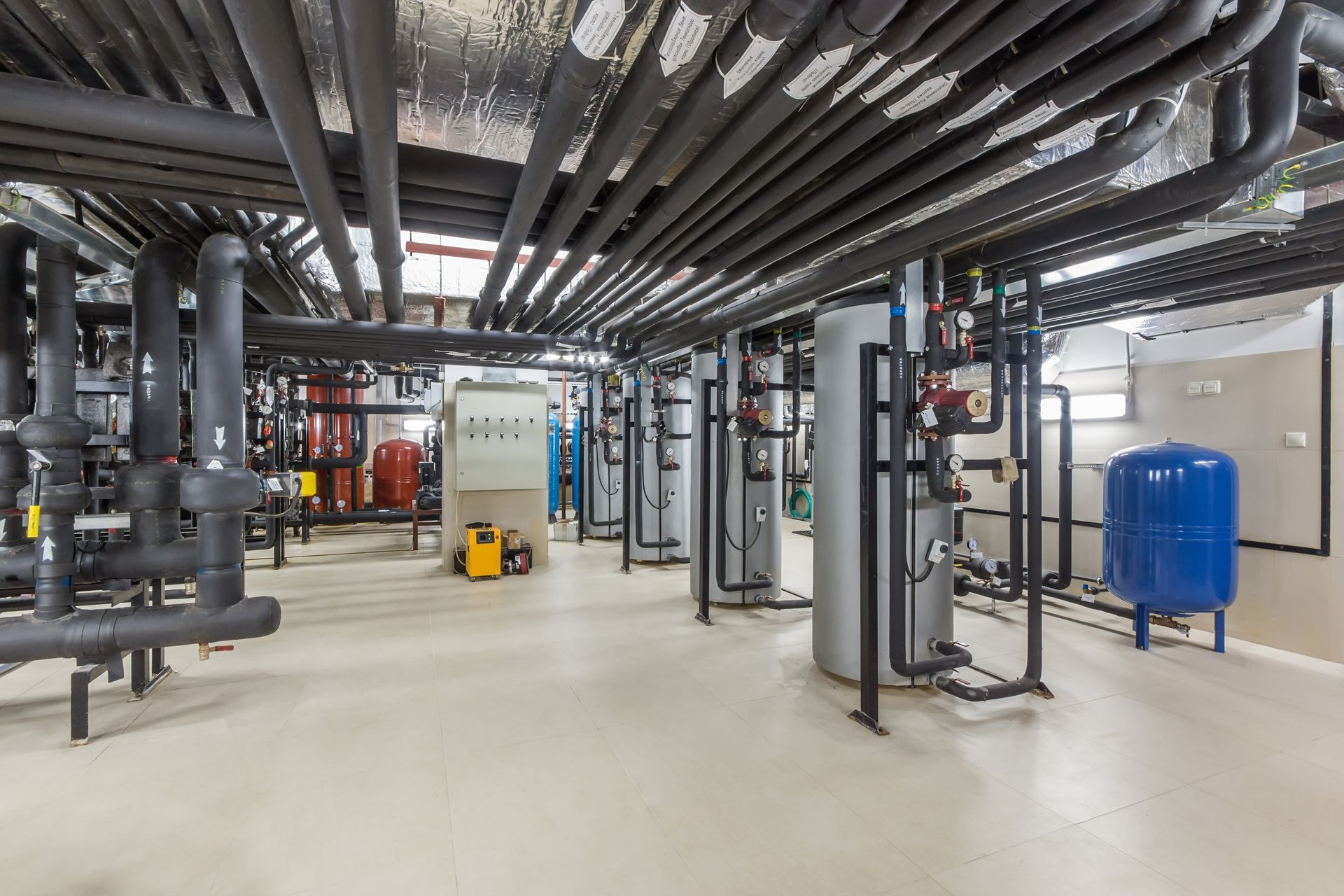
Taking care of your business requires a lot of work, including taking care of the actual building. One possibly overlooked area of your building, however, may be the insulation. If you are sick of expensive heating and cooling bills and pest infestations, consider spray foam insulation. If you would like to learn more, keep reading. What Is Spray Foam Insulation? This is a type of polyurethane foam that is used more and more often as insulation. The insulation is sprayed on as a liquid, but it turns into foam and expands, creating a barrier that looks like marshmallow fluff. Spray foam insulation comes in closed-cell and open-cell. Closed-cell spray foam has a higher R-value than open-cell, making it better at providing insulation. However, open-cell spray foam starts to expand the second it is applied, which makes it easier to ensure you have fully encapsulated the space with insulation. What Are the Benefits? Because the material expands, it better insulates every inch of space, helping to reduce heating and cooling costs. It also helps reduce moisture that gests inside the building. However, closed-cell spray foam is much better at controlling moisture than open-cell foam. Closed-cell foam can even help strengthen the building because the foam is durable and hard after it dries. In addition, it absorbs sounds well so you can better provide a comfortable work environment for employees. For example, do you have a warehouse and employees who provide customer service above the warehouse? The noise from the warehouse may affect the customer service representative's ability to hear customers. Spray foam insulation can help block a lot of this noise. Additionally, spray foam insulation helps with reduced allergens and pests. This is incredibly important because it improves the indoor air quality. Poor indoor air quality could lead to chronic issues as employees who frequently call in sick. What Are the Drawbacks? The leading downside is the curing time. With other forms of insulation, you simply put it in the walls and you are done. With spray foam, you have to wait for it to dry and cure. During this time, you may not want anyone in the building as some gases may release. The other downside is that while spray foam expands to fill every nook and cranny, over time, it can shrink. Therefore, your once fully encapsulated building might start to develop weak spots that allow air, moisture, allergens, and pests to enter. Luckily, you can simply reapply spray foam to fix the problem. How Much Does it Cost? Unfortunately, spray foam insulation is one of the more expensive types of insulation. On average, you can expect to pay $0.70 per square foot for open-cell spray insulation. For closed-cell insulation, you may pay $2.95 per square foot. On top of that, you will pay $1.00 to $3.00 per square foot for installation. Fiberglass batts or rolls, however, only cost $0.90 to $1.50 per square foot, and that includes the materials and installation. Despite the price, both types of insulation can last 100 years or more. However, fiberglass matts are more prone to certain types of damage, such as moisture and mold growth because they absorb water well. Spray foam insulation is not inexpensive, but you will likely recoup some of the money each month by saving on energy bills. Plus, it could provide a more comfortable work environment for employees, which can boost productivity. If you would like to learn more, or if you want a quote on spray commercial insulation, contact us at Breeding Insulation today. We look forward to helping you with your commercial or industrial insulation needs.
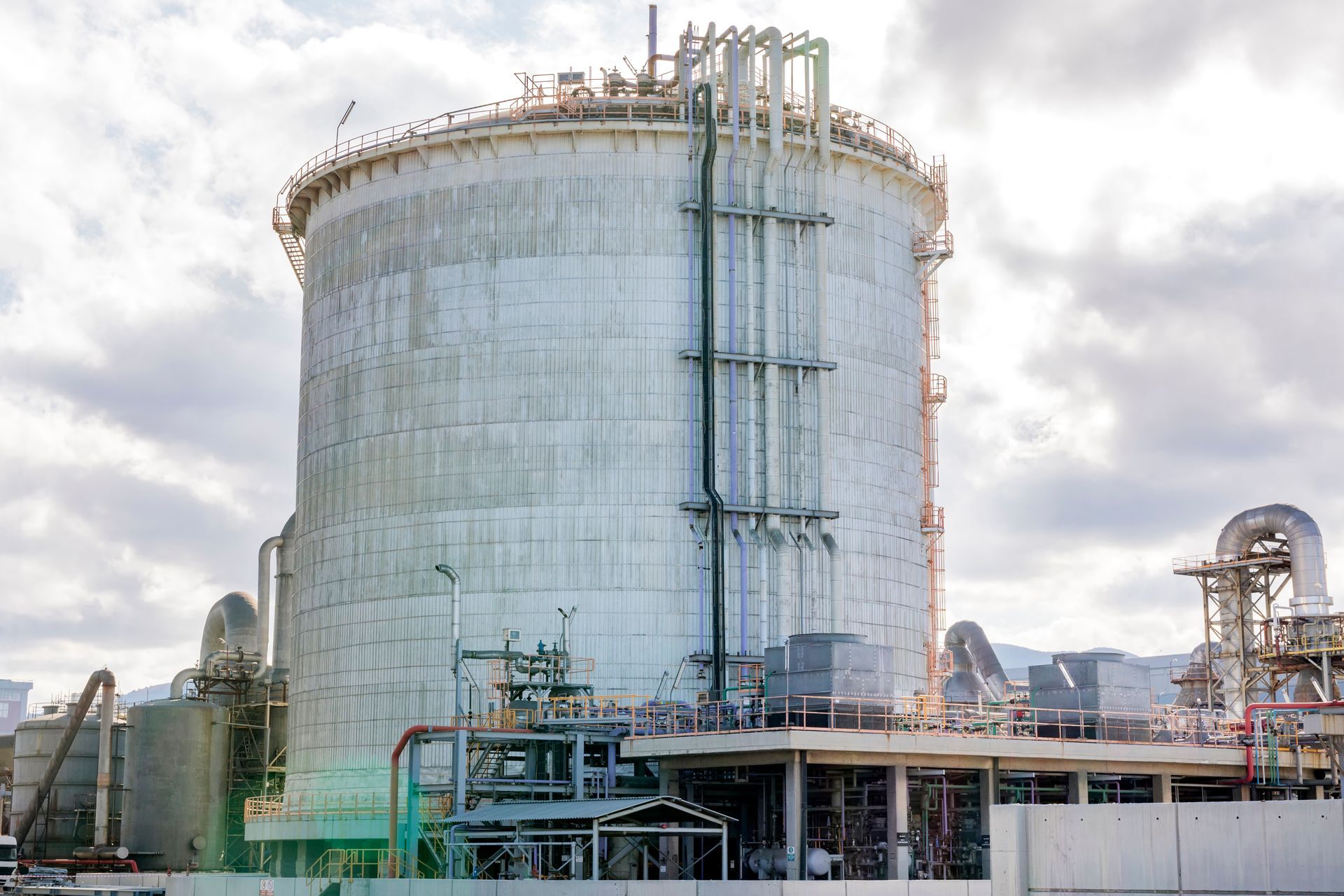
Uninsulated outdoor storage tanks don't always work as well as they should. You can, however, make industrial tanks work more efficiently by installing external insulation on them. What are the benefits of insulating your storage tanks? 1. Improve Tank Performance Outdoor storage tanks can't always create a perfect environment for your stored materials or liquids. They have to deal with different weather conditions that might affect their performance. For example, the contents of a tank might overheat in hot weather. Or, they might freeze in winter months. The tank can't help but absorb and transfer heat and cold. Metal tanks can also develop corrosion problems because they have exposure to rain. If water gets into a tank through rust spots or cracks, then its contents might get moisture or damp problems. If a tank stores temperature-controlled materials or liquids, then it can't always maintain essential process control temperatures. For example, you might need a liquid to stay at a certain heat before it moves through to your manufacturing process. However, if the tank gets too hot or too cold, then the liquid's temperature won't stay at the right level. You might need to cool or heat the liquid before you can use it. This process has time costs if you have to wait for the liquid to reach the right temperature. If you insulate your tanks, then you improve their thermal efficiency. The insulation helps them deal with external heat and cold so that they can maintain the right internal temperature. Also, tank contents won't spoil or get damaged. The insulation creates a protective layer around the surface. 2. Use Less Energy If an uninsulated tank can't keep its contents at the right temperature, then you might have to use more energy to compensate for fluctuations. For example, you have to heat liquids that have cooled down too much in storage; you have to cool them down if they heat up too much. This extra step often increases your energy use and costs. The tank also wastes energy in heat loss if it isn't thermally efficient. When you add external insulation to your tanks, they become more energy-efficient. You shouldn't need to use extra power to manage temperature problems. The tank maintains its optimum internal temperature more effectively. 3. Extend Tank Working Life Outdoor tanks sometimes get damaged or wear faster than indoor alternatives. Rain, sun, frost, and snow can all affect a tank's surface. For example, metal tanks might start to corrode after a few years. This rust might be a cosmetic problem at the start, but it will ultimately compromise the tank's surface integrity. You might have to do regular repair and maintenance work to keep your tanks in good shape. If you need to empty a tank to fix a problem, then you also have to deal with downtime costs. Plus, the tanks might not last as long as you hoped - you might need to buy replacements sooner than you budgeted for. Your overall purchasing, repair, and maintenance costs could be high. If you use insulation on a tank, then you can often extend its working life. You also won't have as many repair or maintenance jobs down the line. Insulation's protective barrier helps prevent problems like metal corrosion by keeping rain and moisture away from the tank's surface. So, your tanks stay in better shape for longer. You won't have to deal with early replacement costs, and your repair and maintenance expenses will be more manageable. To find out more about outdoor tank insulation and how it works, contact Breeding Insulation Company, Chattanooga, Inc. Our experts can create a customized solution to fit your tanks and your operating needs.
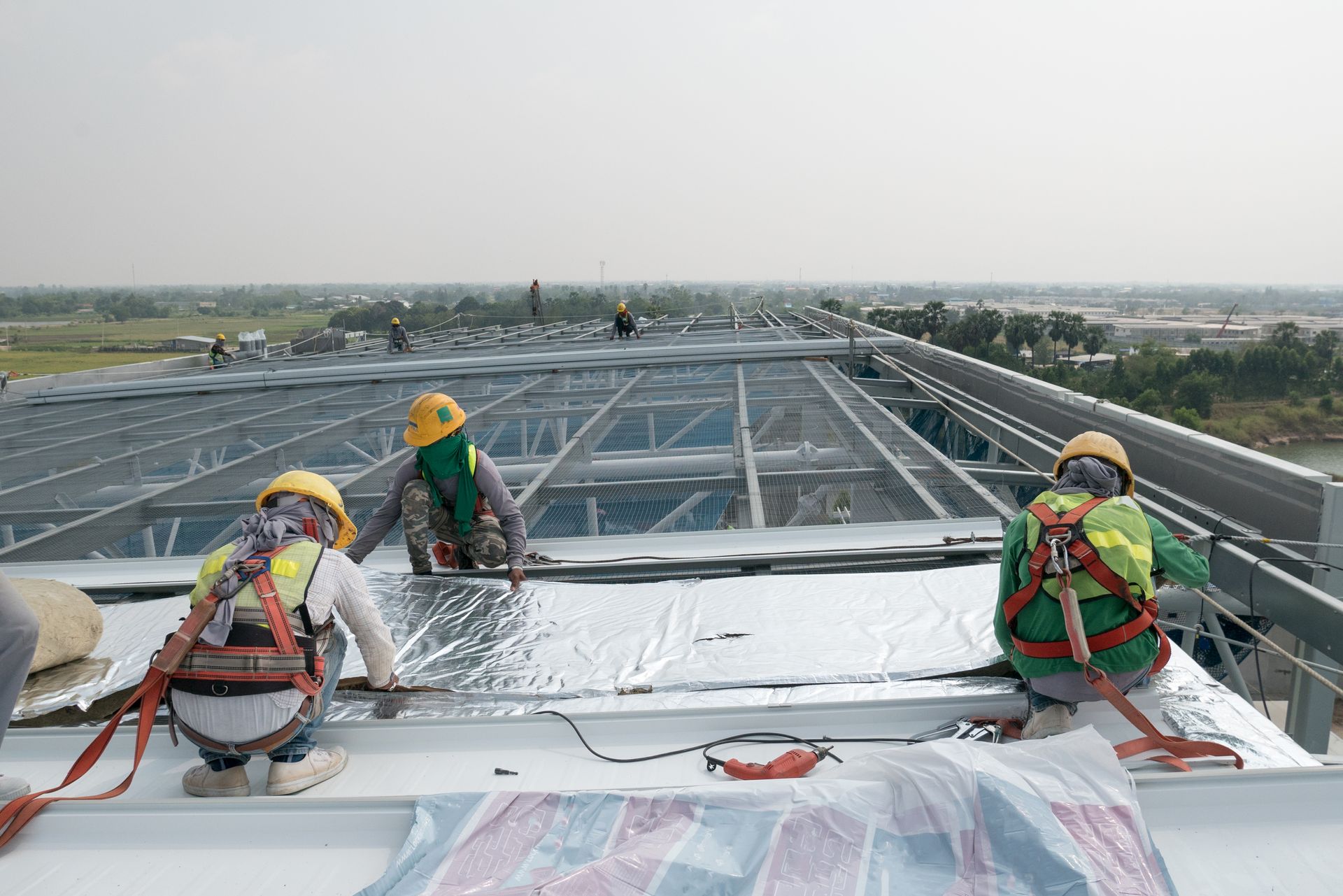
Buildings are not just our main form of shelter - they also provide safe places to conduct business or create products. And while the development of insulating materials has made climate control easier over the years, insulation doesn't last forever. If you notice any of these signs in your commercial building, your insulation needs an upgrade. High Bills Your energy bills will be higher in an industrial building than you are used to paying at home, but if you notice the payments are rising and your budget struggles to keep up, you may want to check your insulation. If the insulation is starting to fail or was inadequate from the beginning, your heating and AC units will have to work harder to keep up the temperatures you want. This will reflect on your company's energy payments. Inconsistent Temperatures If your climate controllers have to work too hard for too long, they'll start to wear down as well. The insulation will continue to wear down and shift, which will make your energy units exert themselves even more, causing a vicious cycle until you take care of the problem. If you find that the temperature controls can't effectively keep your building cool in the summer or warm in the winter, the time has come to replace your insulation. Animal Problems Insulation doesn't have to receive damage to stop working well; it just has to be moved out of position. Rodents and small animals like to crawl into insulation, especially in the roof space of buildings. Their presence will disrupt the function of the insulation as they shift it around to make nests and soil it with their waste. If you find that creatures are building nests in the upper reaches of your building, you'll need to replace the insulation as soon as you can. Animal waste, reproducing pests, and other grime that comes from an infestation will degrade the quality of your insulation, so once you get them out of your building's roof, make sure to use pesticides and deterrents to keep them from returning and soiling the new inserts. Drafty Days If your building always seems to have a breeze, even if machines and temperature controls within are off, you might have holes in your insulation. When the insulation is not installed correctly or is not thick enough to stand up to the winds, it often will give way and allow drafts into your building. If this happens, you will need new installation to correct the issue and prevent future problems. Wet Insulation When your roof begins to leak or your vents experience blockage, you should check the insulation for moisture as well. Besides weakening the material and inhibiting its ability to regulate your building's temperature, wet insulation can also grow mold that will render the air difficult to breathe. If allowed to grow and flourish, the mold can grow toxic and damage your employee's health. By the time you inspect the insulation and find it wet, it's too late to save the material. When you discover a roof leak and have to get a professional to redo it, go ahead and call an insulation specialist company as well and get it all out of the way at once. Does your building exhibit one or more of these symptoms? You need to call in the experts to get your insulation in shape and your business back up to speed. At Breeding Insulation, we have the years of experience, trustworthy reputation, and customer orientation to guarantee you get the best service. Get in touch today to see how we can transform your buildings for the better.
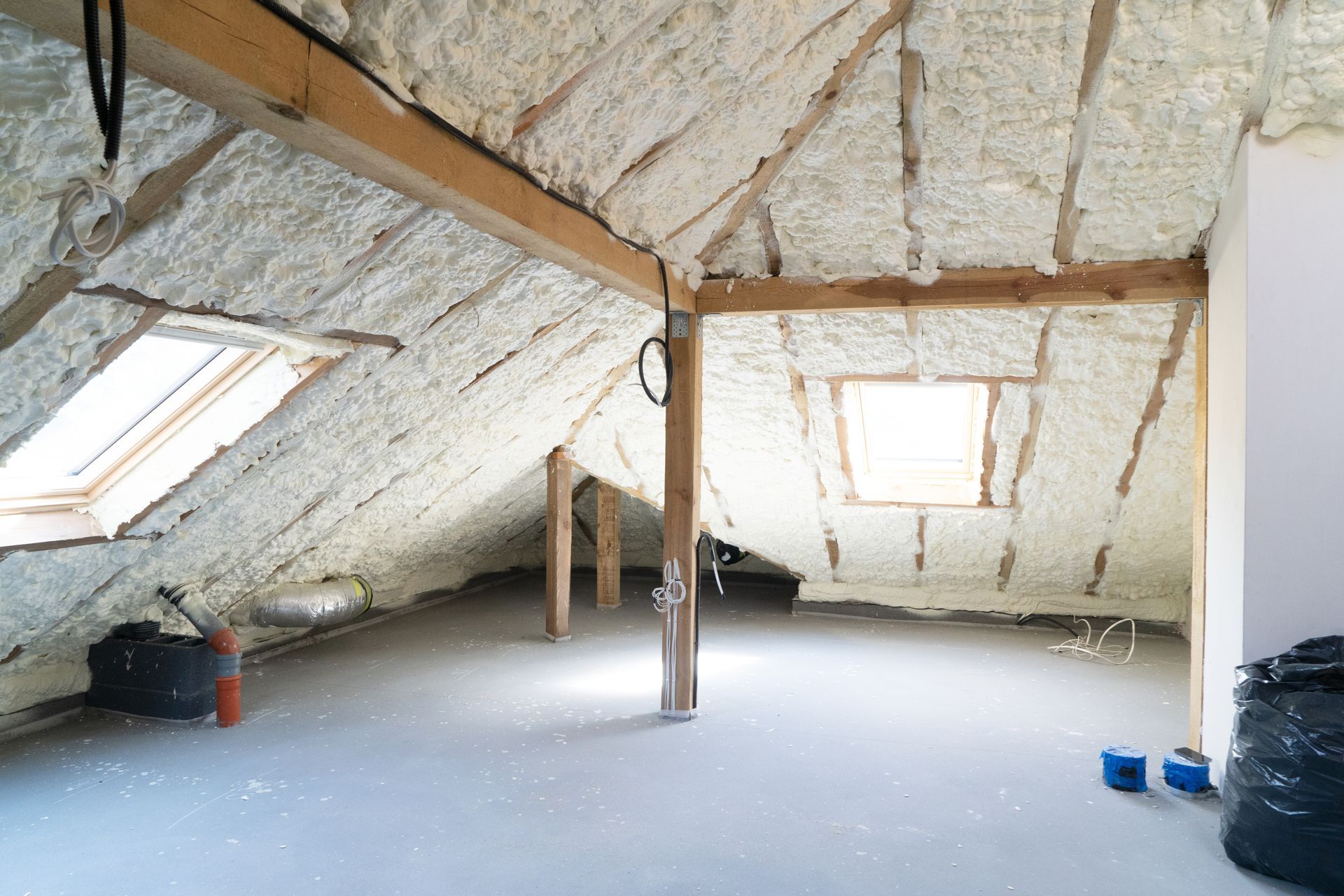
Many commercial property owners want to reach a level of sustainability in their buildings that gains them a LEED (Leadership in Energy and Environmental Design) certification. LEED has become the gold standard for green and sustainable construction. Read on to learn more on what LEED certification means and how proper, professional insulation can help you towards your goal of achieving it. What Does LEED Certification Mean for Commercial Property Owners? LEED certification is a mark that a building adheres to or excels at green design principles. The program, created by the US Green Building Council (USGBC), establishes a rating system that indicates the construction and operations of a building maintain a level of environmental responsibility and sustainability. While remaining environmentally conscious when it comes to commercial properties benefits the environment, there are also very real health and financial benefits that can come from LEED certification. Whom Does LEED Certification Benefit? In truth, LEED certification benefits everybody, and in several ways. Commercial properties can achieve particular benefits that can make achieving LEED certification even more attractive. A LEED certification ensures that the company: Gives occupants a healthy environment Increases comfort levels for occupants Boosts the image of the property owner or businesses attached to the property Has potential for lower utility costs and increased energy efficiency Has potential for tax benefits All these things can benefit a commercial property, the property's owners, and the occupants of the property. Achieving LEED certification can help you a great deal whether you plan to sell or lease the property. You will also have another feature you can use to advertise the property to potential clients or customers. What Does Insulation Have to Do With Obtaining LEED Certification? LEED certification addresses a series of categories: LT: Location and Transportation SS: Sustainable Sites WE: Water Efficiency EA: Energy and Atmosphere MR: Materials and Resources IEQ: Indoor Environmental Quality IN: Innovation RP: Regional Priority Your goal is to add upgrades or features that earn you LEED points in one or more of these categories. The credits you obtain through the LEED system will contribute to your building's LEED Score. Over 2500 credits exist, so you may already have some features in your building that can earn you credit towards certification. Insulation helps by potentially providing several points simultaneously across various categories. In addition, insulation can provide Direct points for using insulation in your building Points that contribute to another LEED project Support towards achieving other LEED goals For example, your building can earn credit under the SS category for reducing the heat island effect. Proper roofing insulation can help achieve the desired reduction. In this way, insulation will contribute to a LEED project that can earn your building points while also earning direct points for your use of insulation in this way in general. Insulation adds to thermal comfort, which can satisfy the requirements of some IEQ credits. Insulation helps with credits in many other categories as well, especially the SS, EA, IEQ, and MR categories. Even if you're not seeking LEED Certification of any level, you can still reap the benefits that come from proper commercial insulation applications. LEED Certification isn't the only way to achieve a greener, more energy-efficient commercial building. However, you can use the program's guidelines to start investing in upgrades to your facilities. Start with proper insulation and you'll find you're already ahead in the process. At the Breeding Insulation Company, Chattanooga, Inc., we can help you lower energy costs and increase interior comfort with expert analysis and professional commercial insulation installation. If you need to upgrade, replace, or install new insulation at your commercial building, contact us today.
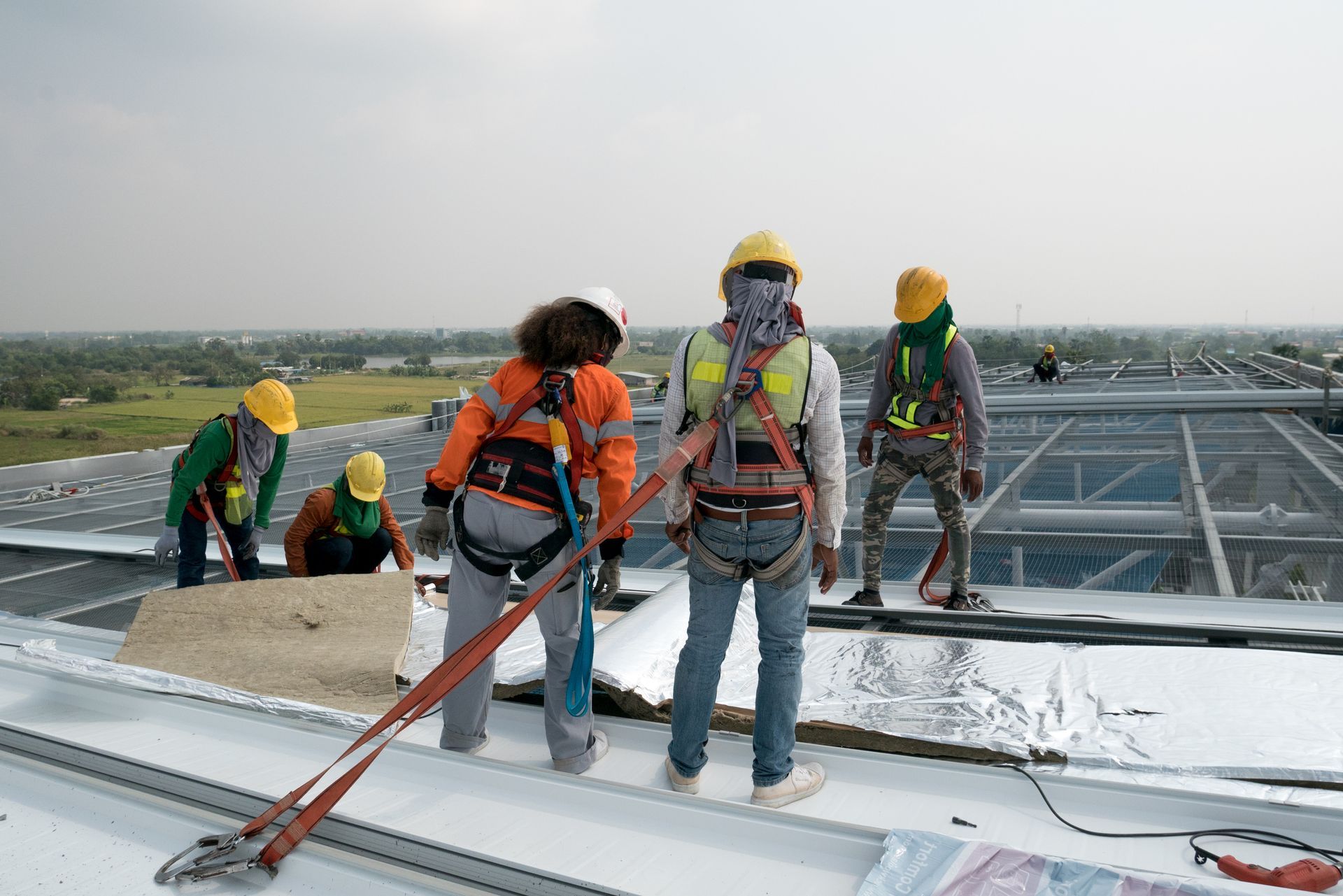
Insulation conveys benefits for all buildings, including commercial properties. Simply put, insulation prevents cold air from entering in the winter and heat from entering in the summer. This prevention of heat transfer is conducive for human comfort. However, added insulation in your commercial property can also optimize your overall business practices. When you're in charge of a commercial property, you want to call in experts when you need to make changes. Below are some reasons to hire a commercial insulation contractor. Insulation Specialists Can Design an Insulation Plan When contractors build a new home, the insulation plan is relatively simple. They usually insulate the entire building envelope, which consists of the outer shell of the house. In smaller commercial buildings, such a plan may also work. However, for larger buildings, a more in-depth plan is needed. Commercial insulation specialists have usually worked in the industry for years. They also have to receive specialized training. So, they have the knowledge base to evaluate your building and design an insulation plan. This plan may include insulating the areas where people work or even applying insulation for noise reduction. They personalize each insulation plan to the building. Insulation Contractors Are Adept With Spray Foam Insulation Depending on the design of your commercial building, spray foam insulation may be part of the plan. Spray foam is good for oddly shaped areas as well as vertical spots. Because of the malleability of spray foam, the insulation seals around edges and holes to make the building envelope as airtight as possible. Insulation contractors are not only knowledgeable in how to incorporate spray foam insulation into your plan, they're also adept at applying it. Spraying the foam insulation is an involved process. The contractors use a heavy machine that mixes two chemicals and heats them up before conveying them via a nozzle to the target area. In other words, this is not a DIY project. Insulation Experts Can Advise You About Eco-Friendly Options Going green is the byword in building these days, and that includes insulation. You have different options for eco-friendly insulation, including: Cellulose fiber Rigid cork Denim Wool Mycelium Reputable insulation contractors will have experience with, or at least knowledge about, these green insulation materials. They can incorporate them into their insulation plan in ways that best fit your targets. Insulation Contractors Know the Building Codes All buildings, including residences, must follow local building codes. However, residential buildings rarely get inspected to ensure they're up to code. Commercial buildings are a different story. Failure to ensure your insulation is up to code can result in lost revenue. For insulation contractors, understanding the codes is a big part of their jobs. For instance, many of them sign up for the Building Codes Assistance Project or similar newsletters. These information sources clue them in to the updates made in both commercial and residential code requirements. These requirements vary state by state and even across different municipalities. Insulation Experts Can Advise You on Other Relevant Tidbits Commercial insulation differs from residential insulation in many ways that don't have to do with heat energy transfer. So, if you hire an expert on this topic, you can get advice on other tidbits relevant to insulation. For instance, a big benefit for commercial properties is that insulation is applicable so it reduces noise levels. If you have an office building, the insulation expert can advise you on where to place insulation so it reduces both outside noise and that from other offices or cubicles. If you have a factory, the expert can devise insulation that cuts back on noise from the machinery. Below are some other relevant tidbits an insulation specialist can help you with: Prevention of moisture condensation Fire protection Protection of personnel Reduction of pollutant emission All of these details can help your commercial property be a smooth operation. Feel free to pick your insulation expert's brain for all the ways insulation can benefit your commercial property. When you're ready for a professional insulation contractor, call Breeding Insulation Company, Chattanooga, Inc.
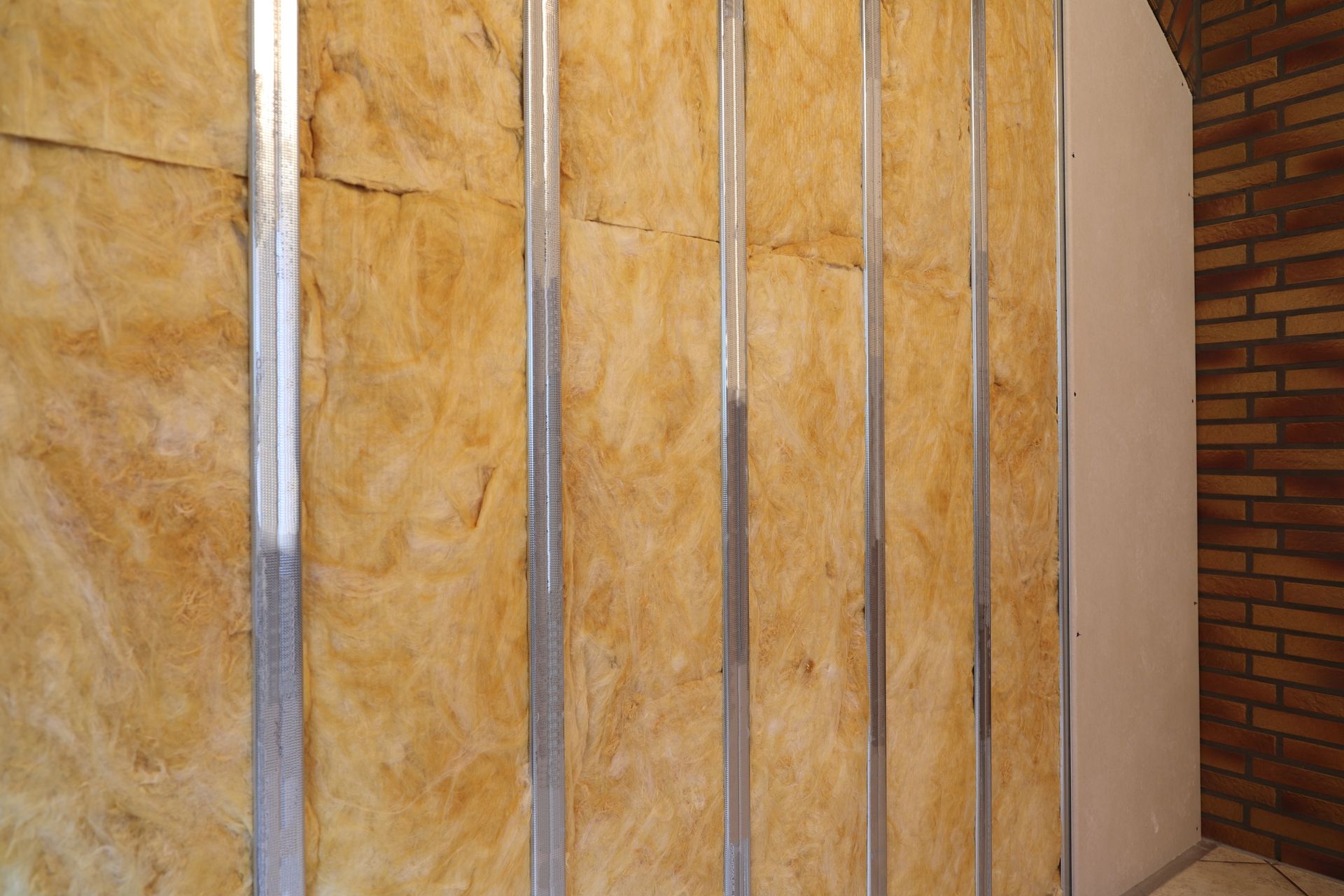
Most businesses will have some type of insulation installed. However, even the best insulation will eventually need to be updated or replaced. The key is for you to know the indicators that the time has come for insulation changes. Fortunately, your business will usually send you some pretty clear signals. If you pay attention to them, you can avoid the pitfalls of not having sufficient insulation for your business. Uneven Temperatures Do some of your workers complain that their office or other workspace is too hot, while others complain of being too cold? Or maybe you've just noticed one or two areas in your business building that never seem to be the same temperature as the rest of your space. Whatever the case may be, if you can't maintain steady temperature throughout your business, this is often an indicator of an insulation issue. You might not have enough insulation in one area, or the insulation in a particular area might be worn or damaged. To keep your employees and clients comfortable, and to enjoy consistent temperatures throughout your building, have a professional insulation company perform an inspection to see what's causing the problem. High Utility Costs Something else to pay attention to is your business utility costs. If you're like many business owners, you just pay the bill without even really looking at it. It may even come out of your business account directly. However, get into the habit of tracking how much you spend on heating and cooling. This is important since it will alert you to any big, sudden changes in your costs. These changes shouldn't be ignored since they often signal some kind of problem. One possibility when you see a spike in costs is that you need insulation replacement or repairs. So if you can't find any other cause for your increased costs, consider having your insulation checked out. Burst Pipes When temperatures drop too low, the pipes within the walls can burst. Unfortunately, this is a huge problem that can cost thousands of dollars in damage and repairs. Frozen pipes can sometimes be caused by poor insulation. Luckily, they can be prevented by having the proper amount of insulation. By having your insulation checked, especially around heavily-piped areas, you can hopefully avoid a burst pipe and other serious potential implications of frozen pipes. Heavy Condensation When you get to work in the morning, do you notice lots of condensation? Some condensation on the windows is normal in the morning, but if you're noticing condensation in other areas, or if it doesn't go away quickly, then this could be a sign that your insulation isn't doing its job. Furthermore, all that moisture in the air isn't good for the building or the overall air quality, so this is an issue that should be addressed swiftly. A Noisy Workplace Does it feel like the walls in your business have suddenly gotten paper-thin? Maybe workers complain about being able to hear everything going on in the next room or about not being able to concentrate. Surprisingly, a noisy workplace can sometimes be caused by insufficient insulation. Noise carries all too easily without insulation to absorb some of the sound. There are many indicators that your insulation is not what it should be. If you know the signs and watch out for them, you can fix insulation problems before they have the chance to turn into even more serious problems. For help with your commercial insulation needs, contact the experts at Breeding Insulation. Our team can help you update the installation in your business so you can avoid these distracting, and potentially expensive, problems.
